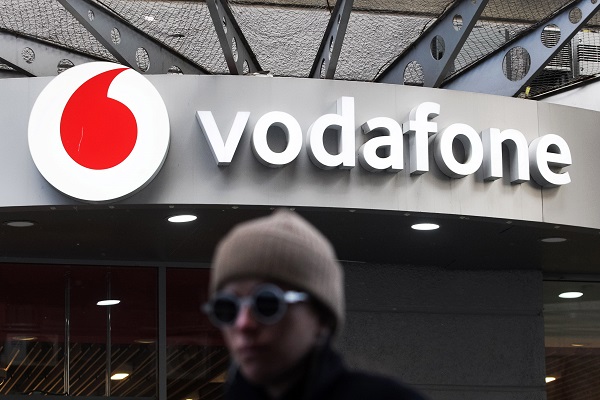Vodafone shares punished despite big annual profit
It swung to a full-year profit, but these results are clearly not good enough for the City.
18th May 2021 08:19
by Richard Hunter from interactive investor
It swung to a full-year profit, but these results are clearly not good enough for the City.

These are not results to shoot the lights out, but there are signs of measured progress at Vodafone Group (LSE:VOD) within an extremely competitive sector.
Cosmetic changes at the operating profit level have been a large contributor to an overall profit of €536 million in the year to 31 March, as compared to a loss of €455 million the previous year. Underlying operating profit was broadly stable, with a reduction in operating expenditure of €500 million showcasing Vodafone’s desire to streamline its operations.
At the same time, the net debt figure improved to €40.5 billion from €42 billion, partially helped along by net proceeds of €2 billion resulting from the Vantage Towers IPO, in which the company retains a stake. This reduction was achieved despite increased investment in network performance to ensure resilience during the pandemic, when connectivity took on a whole new importance.
- Stockopedia: dividend blue-chips that offer income comfort
- Check out our award-winning stocks and shares ISA
Service revenues strengthened in the second half of the year, with the acquisition of Liberty Global's (NASDAQ:LBTYK) German business already paying dividends. Germany now accounts for 31% of total group revenues and is a key growth area in achieving Vodafone’s ambitions, while “converged” accounts which offer a quadruple play of bundled landline, broadband, mobile and TV are proving positive for customer retention. Meanwhile, the company has expanded its 5G rollout and is now available in 240 cities across 10 of its European markets.
Further streamlining was in evidence in digital sales, which now account for 26% of the total across its markets in Germany, Italy, the UK and Spain. This plays into Vodafone’s wider strategy of capitalising on what it sees as major growth opportunities in the coming years, such as the switch to remote working which is likely to remain in some form post-pandemic, the “Internet of Things” or connected devices, and digital payments.
There is certainly much to do for Vodafone, particularly in a notoriously competitive sector which can often simply come down to price in the mind of the consumer. The pandemic has had its own effect on revenues also, with an inevitable decline in visitor and roaming revenues, while handset sales have also suffered.
For the income-seeking investor, a dividend yield of around 5.7% remains punchy and is clearly an affordable and desirable part of Vodafone’s strategy, which should keep it ringfenced from other drains on capital. The dividend has long been an attraction of the stock and has partially mitigated a tepid share price performance over recent years.
Indeed, despite the price having risen by 17% over the last year, largely in line with the wider FTSE 100’s rise of 16%, the shares remain down by 28% over the last three years and by 38% over the last five. Despite some concerns that Vodafone has become a perennial “jam tomorrow” stock, there is evidence of meaningful progress washing through, and the market consensus of the shares as a 'strong buy' is likely to remain on improving prospects.
These articles are provided for information purposes only. Occasionally, an opinion about whether to buy or sell a specific investment may be provided by third parties. The content is not intended to be a personal recommendation to buy or sell any financial instrument or product, or to adopt any investment strategy as it is not provided based on an assessment of your investing knowledge and experience, your financial situation or your investment objectives. The value of your investments, and the income derived from them, may go down as well as up. You may not get back all the money that you invest. The investments referred to in this article may not be suitable for all investors, and if in doubt, an investor should seek advice from a qualified investment adviser.
Full performance can be found on the company or index summary page on the interactive investor website. Simply click on the company's or index name highlighted in the article.